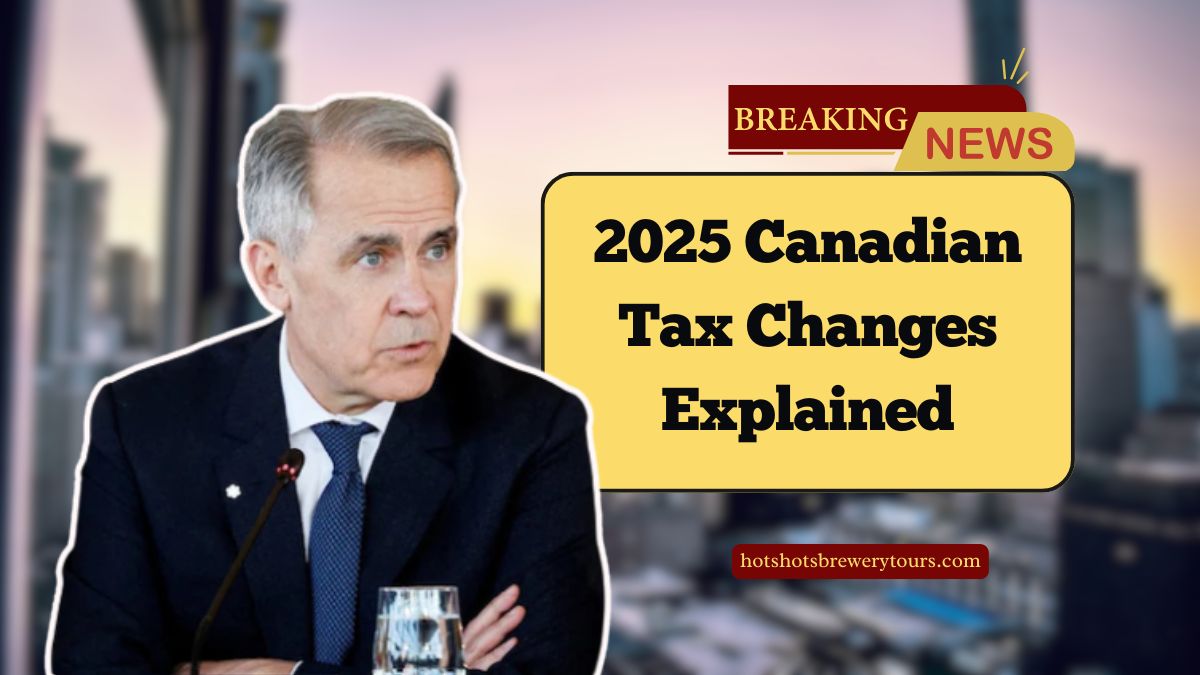Canada is implementing major tax reforms in 2025 that will affect individuals, families, and businesses across the nation.
From income tax bracket adjustments to capital gains changes, and new saving opportunities like the First Home Savings Account (FHSA), staying informed is crucial for smart financial planning.
Here’s a detailed breakdown of all the important Canada 2025 tax changes and how they could impact you.
Updated Federal Tax Brackets for 2025
To keep up with inflation, federal tax brackets have been adjusted upwards by 2.7%. Here’s the updated breakdown:
Income Range | Tax Rate |
|---|---|
| $0 to $57,375 | 15% |
| $57,375 to $114,750 | 20.5% |
| $114,750 to $177,882 | 26% |
| $177,882 to $253,414 | 29% |
| Above $253,414 | 33% |
Key Point: Middle-income earners will enjoy modest tax relief, while high-income individuals will continue to pay proportionately more.
Changes to Provincial Taxes in Ontario
Residents of Ontario will also see a 2.8% increase in provincial tax credits and income brackets, helping to offset inflation and improve affordability for households across the province.
Increased CPP Contributions
Starting in 2025, the maximum pensionable earnings under the Canada Pension Plan (CPP) will increase to $71,300 (up from $68,500 in 2024).
- Employee Contribution: Up to $3,367.50
- Self-Employed Contribution: Up to $8,068.20
Note: While this strengthens retirement funding, it also raises payroll costs, particularly for self-employed Canadians.
Expansion of TFSA Limits
The annual Tax-Free Savings Account (TFSA) contribution limit will rise to $7,000 in 2025.
This increase offers Canadians more room for tax-free savings on investments, emergency funds, and retirement goals.
First Home Savings Account (FHSA) Launch
The FHSA will be fully operational in 2025, allowing first-time homebuyers to:
- Save up to $8,000 per year.
- Access a $40,000 lifetime contribution limit.
- Enjoy tax deductions on contributions and tax-free withdrawals for purchasing a home.
Tip: This account is a game-changer for young Canadians struggling with housing affordability.
Capital Gains Tax Changes Mid-2025
Effective June 2025, the capital gains inclusion rate will:
- Remain at 50% for gains below $250,000.
- Increase to 66.67% for gains above $250,000.
This move targets high-net-worth individuals and larger investors, impacting portfolio management strategies.
Lifetime Capital Gains Exemption (LCGE) Expansion
The LCGE for small business shares, farming, and fishing property sales will increase to $1.25 million in 2025 (up from $1,016,836).
This update supports entrepreneurs and family-run businesses, making succession and exit strategies more tax-efficient.
Boost to Canada Child Benefit (CCB)
Starting July 2025, the Canada Child Benefit (CCB) will rise by 2.7%, helping families manage rising living costs.
The CCB remains tax-free and income-tested, based on the 2025 tax filings.
What These 2025 Tax Changes Mean for You
- Positive Impact:
- Increased TFSA and FHSA limits create better savings opportunities.
- Tax bracket indexing provides moderate relief for many households.
- Challenges:
- Higher CPP contributions and capital gains rates could increase tax burdens for high earners and business owners.
- Opportunities:
- Entrepreneurs benefit from the LCGE expansion.
- First-time buyers gain a major advantage with the FHSA.
Pro Tip: Work closely with a financial advisor to adjust your tax strategy accordingly and maximize benefits.
The Canada 2025 tax changes bring both opportunities and challenges. Whether you’re saving for a home, planning for retirement, or managing a business, understanding these updates will help you adapt and thrive financially.
Stay proactive, update your financial plans, and take full advantage of the new tax incentives to secure a better financial future.
FAQs
How much is the new TFSA contribution limit for 2025?
The TFSA contribution limit for 2025 is $7,000, allowing Canadians more flexibility in tax-free saving.
When do the new capital gains tax rules start?
The updated capital gains inclusion rate applies from June 2025 onward, affecting gains over $250,000.
What is the FHSA, and who qualifies?
The First Home Savings Account (FHSA) is for first-time homebuyers, offering tax-deductible contributions and tax-free withdrawals for home purchases.
